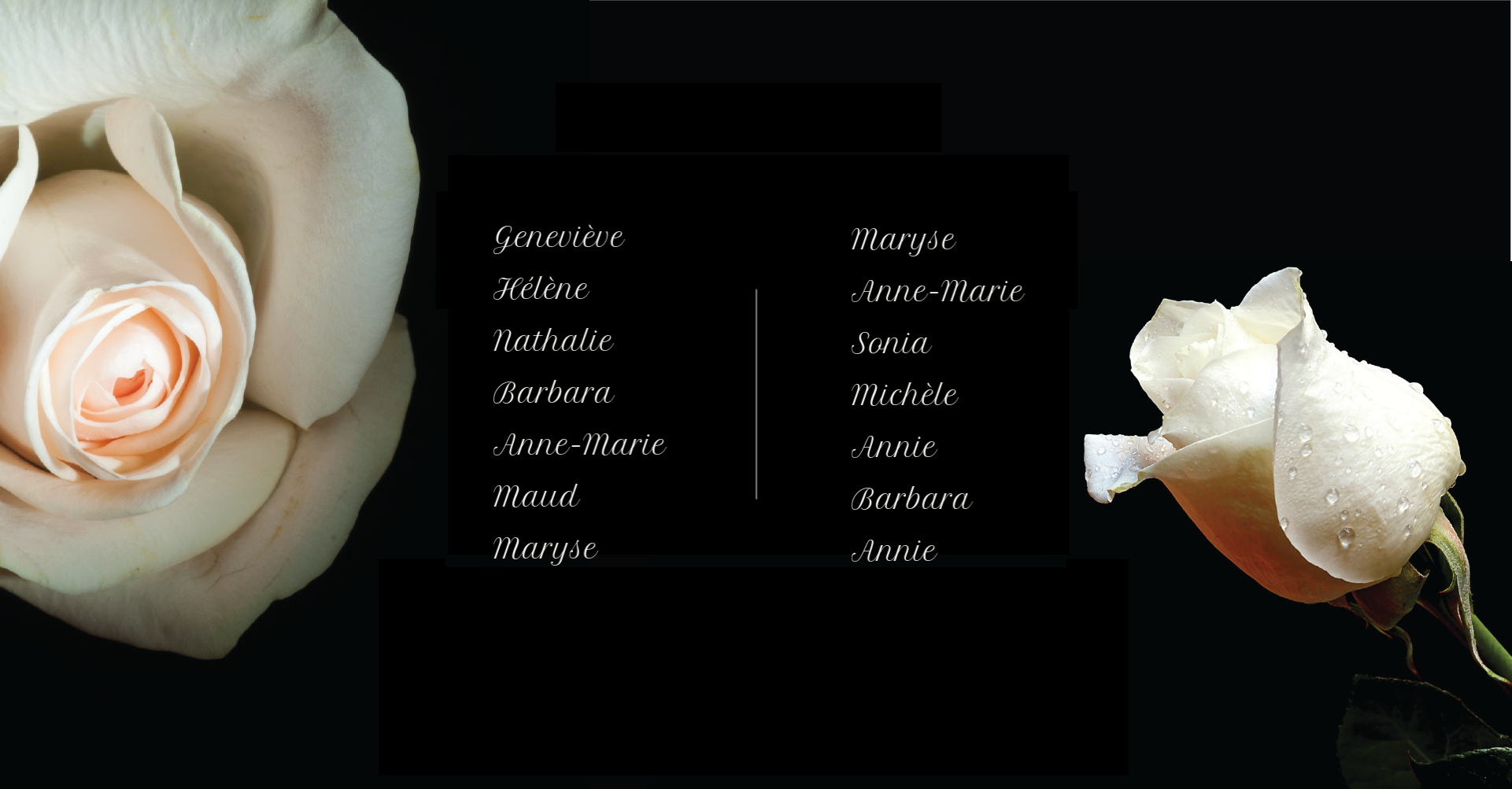
December 6, 2019 is the 30th anniversary of the 14 women who were murdered at the École Polytechnique de Montréal. Designated the National Day of Remembrance and Action on Violence Against Women, it has become a time to remember not only the victims, but the many other women whose lives have been lost as a result of violence - and to take a stand against gender-based violence.
There will be a memorial event on north campus from 12 p.m. - 1 p.m. at the SUB Stage, and another on Campus St. Jean from 10 a.m. - 11 a.m. in the Salle Historique/Salle Onésime Dorval (Lacerte 1-04).
The Quad asked the women participating in these events to share their thoughts on the importance of continuing to recognize this day:
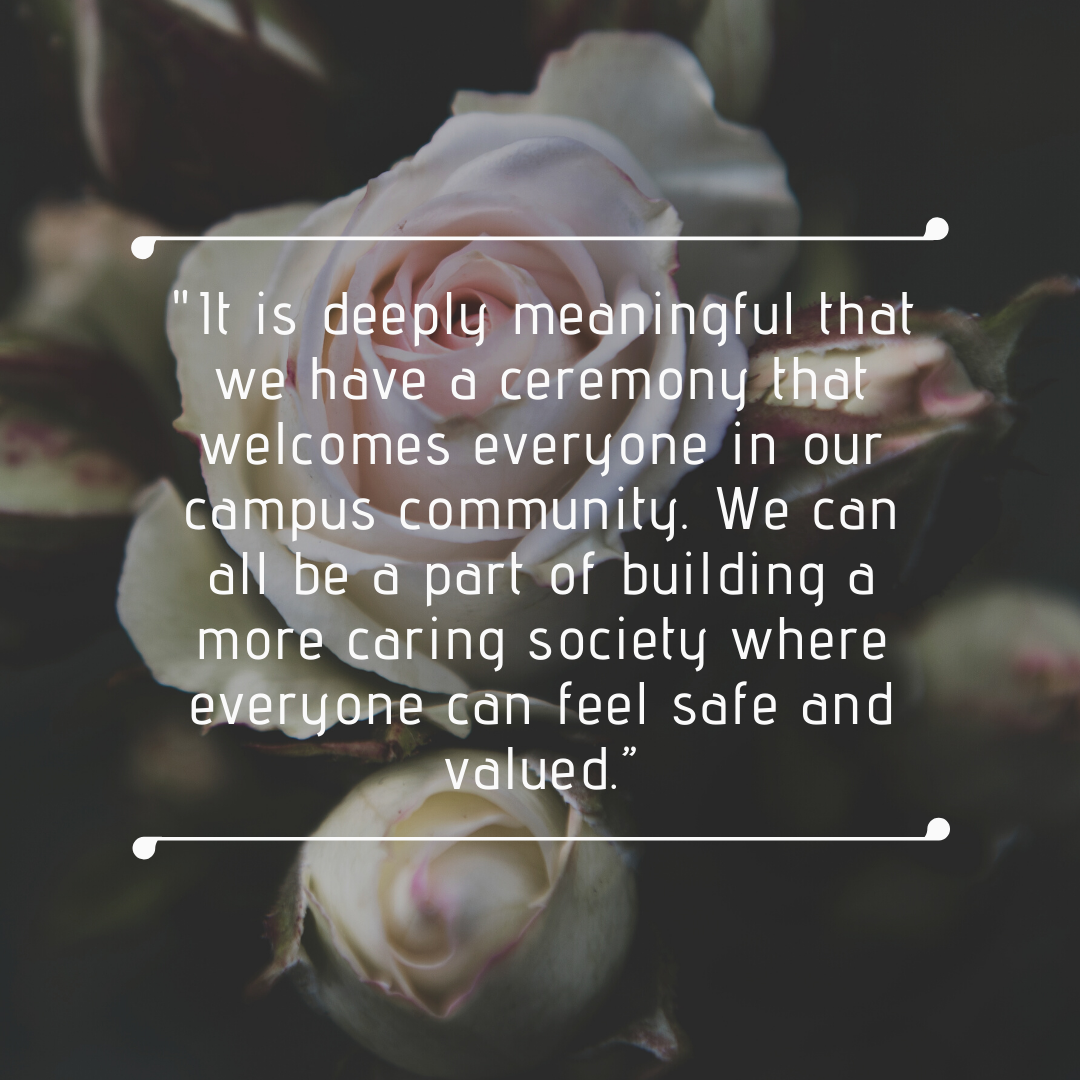 Elizabeth Johannson, President, Non-Academic Staff Association
Elizabeth Johannson, President, Non-Academic Staff Association
"In 1989 women across Canada were united in fear as we heard about the mass shooting of 14 young women in Montreal. It seemed unbelievable that a university could be the scene of such a tragedy. As we came together to mourn, we also came together to support each other. As an undergraduate student I remember participating in the annual reading of the names.
It has been important to me, as NASA President, that NASA be active in a variety of campus events, particularly ones related to Equity, Diversity, and Inclusion. A few years ago, we decided that we wanted to participate in the December 6 memorial, but the kind of ceremony that I remembered from my own undergraduate days was not happening on campus. I am fortunate to have had the opportunity to build connections with many groups and when I started reaching out to people about revitalizing the event we had a wonderful response. All of the campus associations wanted to participate and we were able to establish a ceremony jointly hosted by NASA, the SU, AASUA, GSA, and PDFA. This year's participants also include Chancellor Stollery, the Academic Women's Association, and the Alumni Association. Missing and Murdered Indigenous Women and Girls are remembered as part of the ceremony.
Thirty years later, there is still work to do and the call to take action on violence against women still needs to be repeated. It is deeply meaningful that we have a ceremony that welcomes everyone in our campus community. My hope is that we can all find an action to take, be it attending the ceremony, donating to a women's shelter, volunteering for a non-profit that supports women, or whatever action you have the capacity to do. We can all be a part of building a more caring society where everyone can feel safe and valued."
- Elizabeth Johannson, President, Non-Academic Staff Association
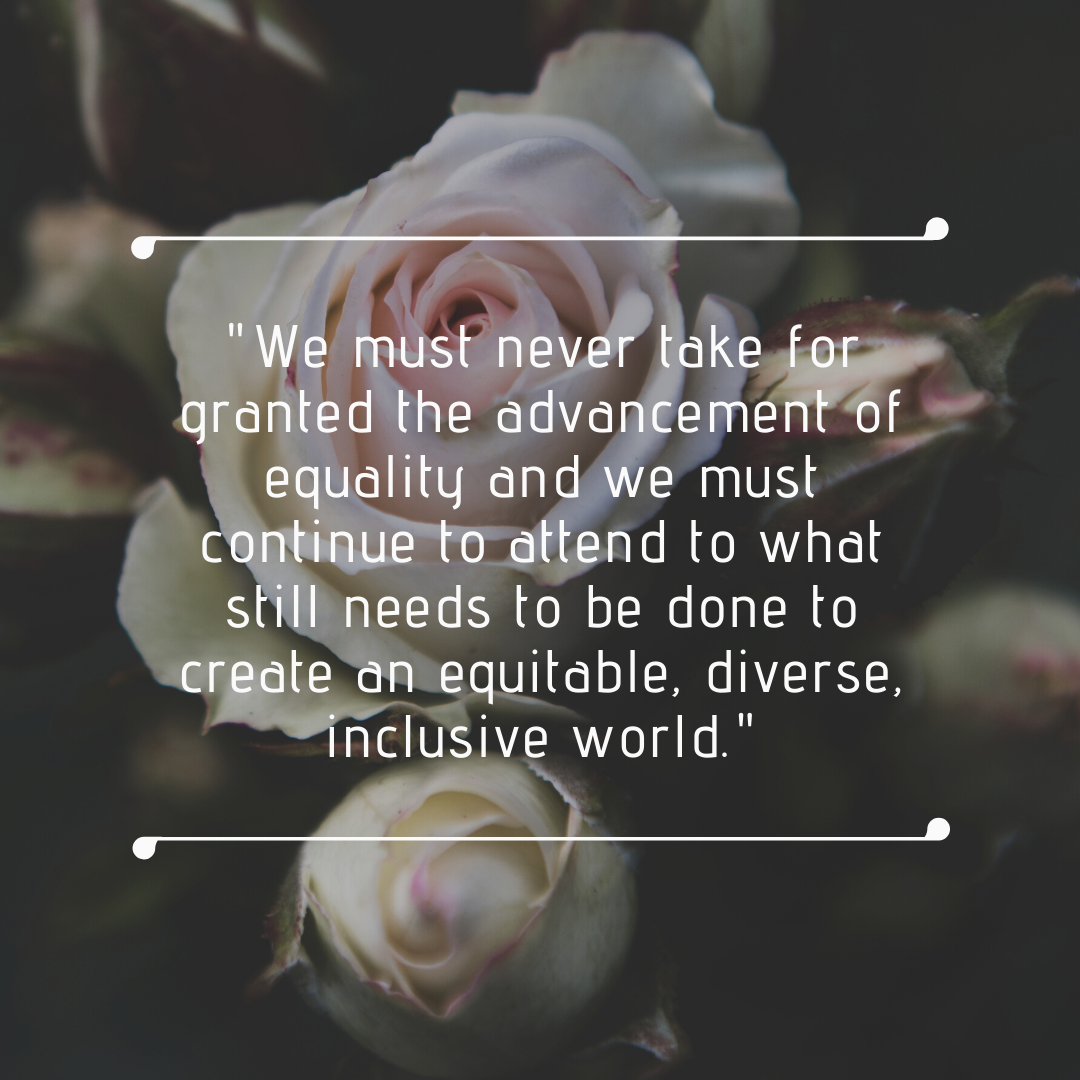 Heather Raymond, Alumni Association President
Heather Raymond, Alumni Association President
"I sat in the audience last year and was touched by the power of the white rose ceremony in tribute to the victims as well as the wounded, the families, the faculty members, the employees, and the students who were forever affected by the tragedy. During the ceremony I thought about the pain in every mass shooting. We can never forget our outrage. We can never allow it to be pushed into the past.
It is a time to reflect on the injustices faced by women around the world, unequal education rights, gender-based violence, infanticide of baby girls, gender pay gaps. We must never take for granted the advancement of equality and we must continue to attend to what still needs to be done to create an equitable, diverse, inclusive world."
- Heather Raymond, Alumni Association President
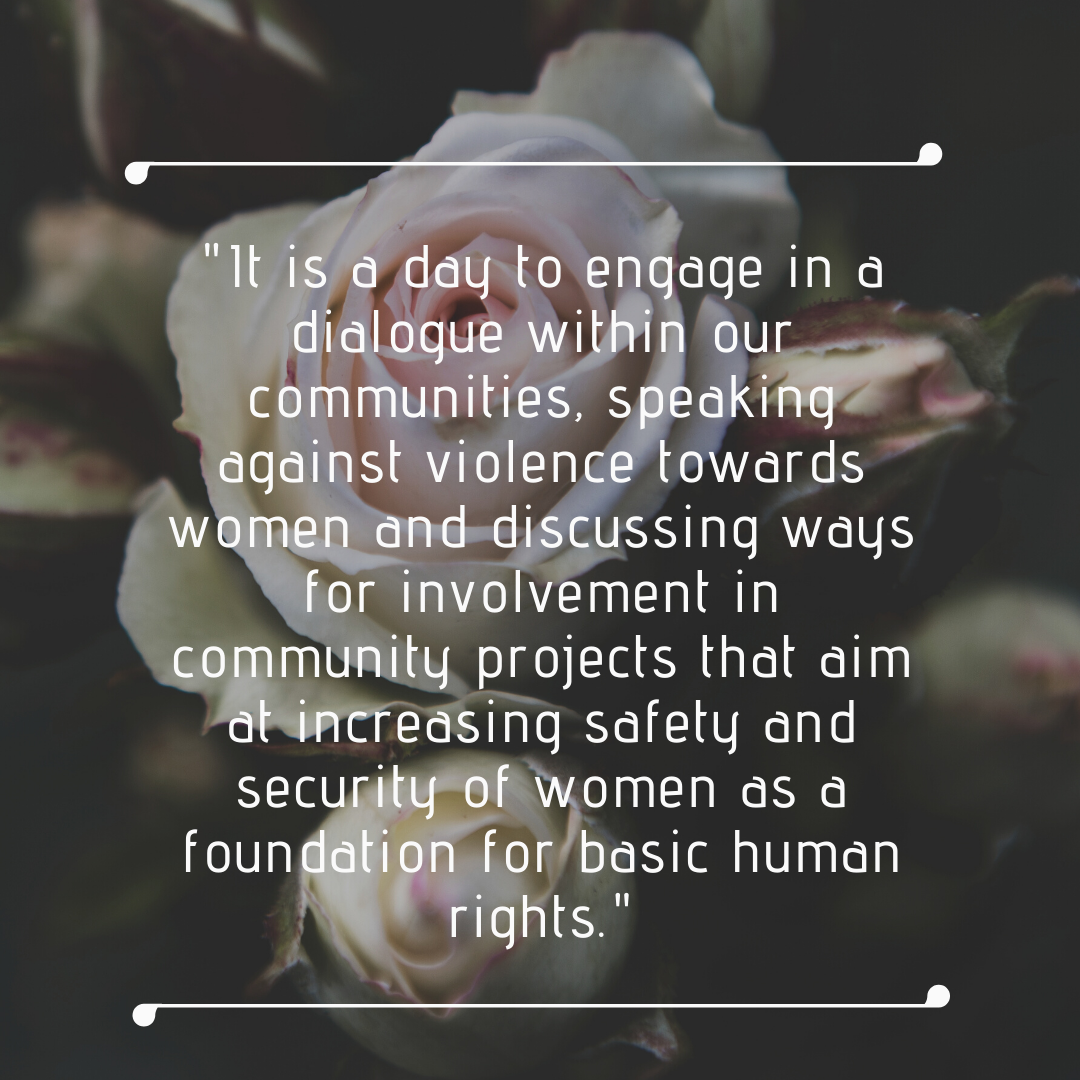 Helly Goez, President, Academic Women's Association
Helly Goez, President, Academic Women's Association
"The murder of 14 female engineering students in Montreal in 1989 was explicitly gender based. Unfortunately, 30 years later, women around the entire world still experience violence, including missing and murdered Indigenous women, women from equity-seeking groups, and vulnerable populations. This day provides us an opportunity to commemorate the murdered women and to reflect on daily occurrence of violence against girls and women. It opens windows of awareness to remind us as a society, how harmful can hatred and exclusion be. It is a day to engage in a dialogue within our communities, speaking against violence towards women, and discussing ways for individual and group involvement in community projects that aim at increasing safety and security of women as a foundation for basic human rights."
- Helly Goez, President, Academic Women's Association
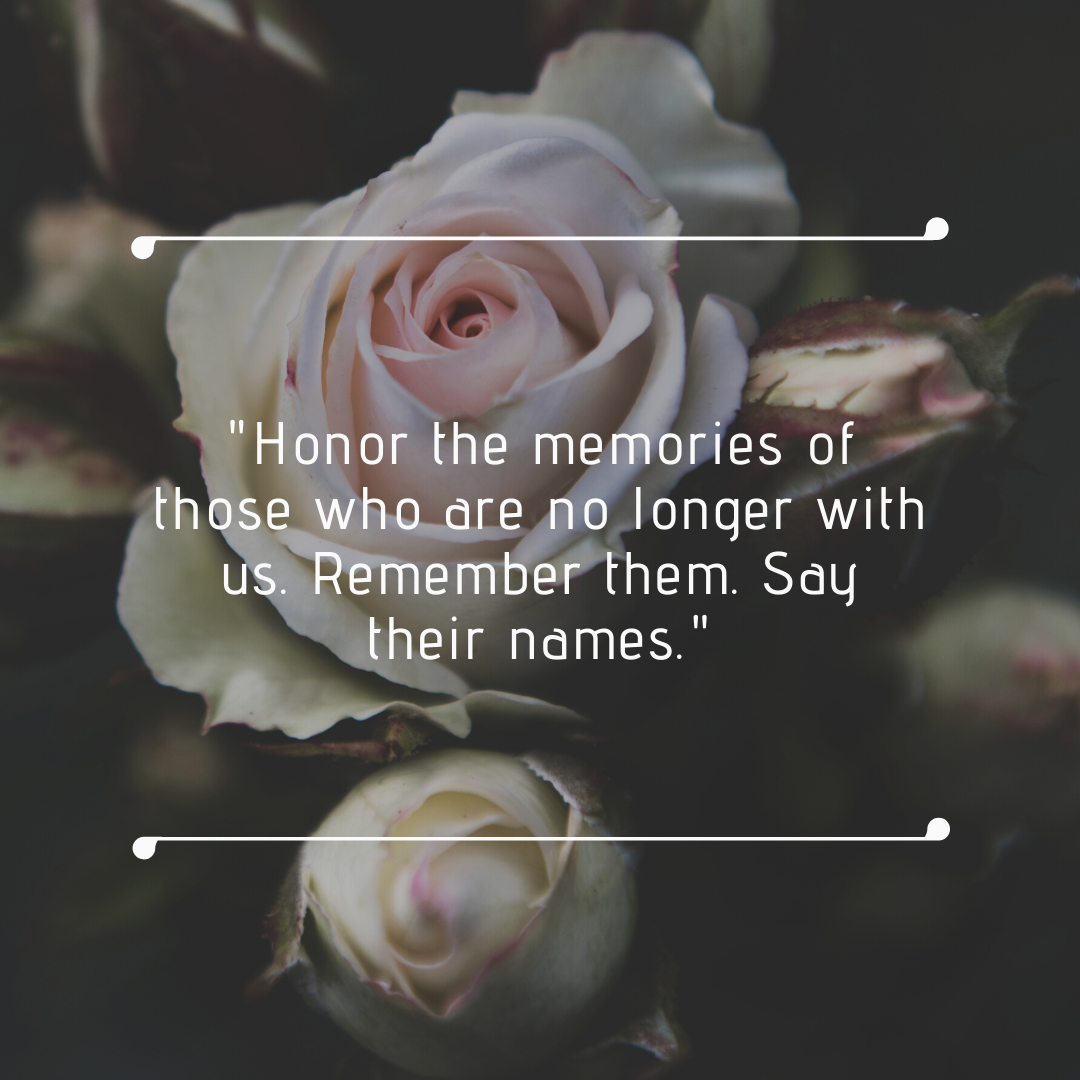 Carley Lizotte, U School Classroom Facilitator
Carley Lizotte, U School Classroom Facilitator
"I am participating in the event to raise awareness of gender and race-based violence against Indigenous women and girls, which has existed since first contact and continues today. It is very important that we discuss this issue not only on any single occasion but on an ongoing basis. The recently released Final Report on the National Inquiry into Missing and Murdered Indigenous Women and Girls states that Indigaenous women and girls are 12 times more likely to be missing or murdered than any other women in Canada. The rates of violence against Indigenous women and girls are extremely high, and this crisis is very real in the lives of Indigenous people. I encourage the audience to listen to survivors of violence, family members of Missing and Murdered Indigenous Women and Girls, and community members. Read the final report from the MMIWG inquiry. Honor the memories of those who are no longer with us. Remember them. Say their names."
- Carley Lizotte, U School Classroom Facilitator
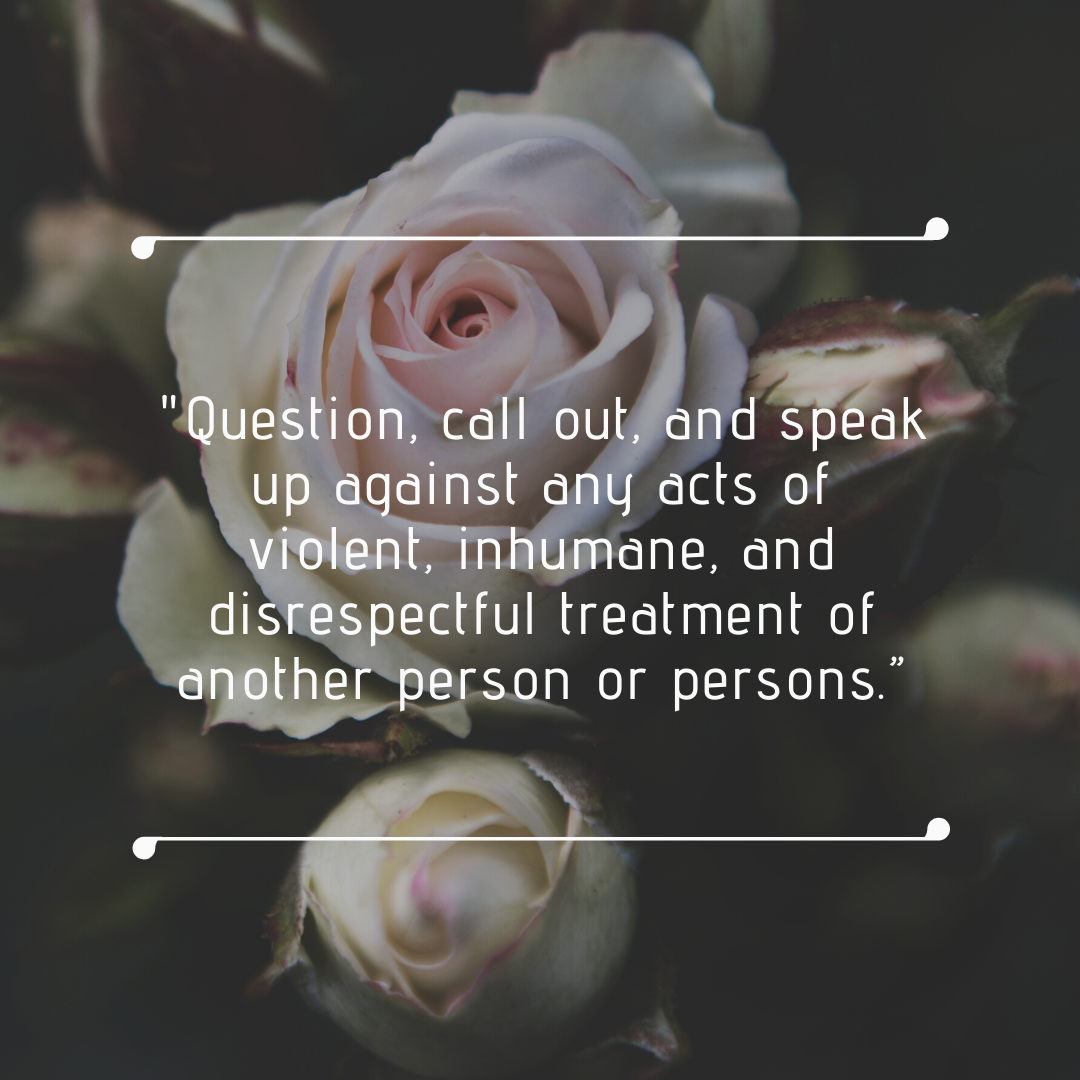 Simone Pfleger, on behalf of the Post Doctoral Fellows Association
Simone Pfleger, on behalf of the Post Doctoral Fellows Association
"As the Post Doctoral Fellows Association we seek to use this event as an opportunity to reflect on the disproportionate injustices and violent acts faced by not only women and girls but also many LGBTQIA2S individuals and individuals with a disability. Through our participation in the campus event, we want to express our support of those of you who have experienced any form of gender-based hatred or violence, and hope to encourage others to question, call out, and speak up against any acts of violent, inhumane, and disrespectful treatment of another person or persons."
- Simone Pfleger, on behalf of the Post Doctoral Fellows Association
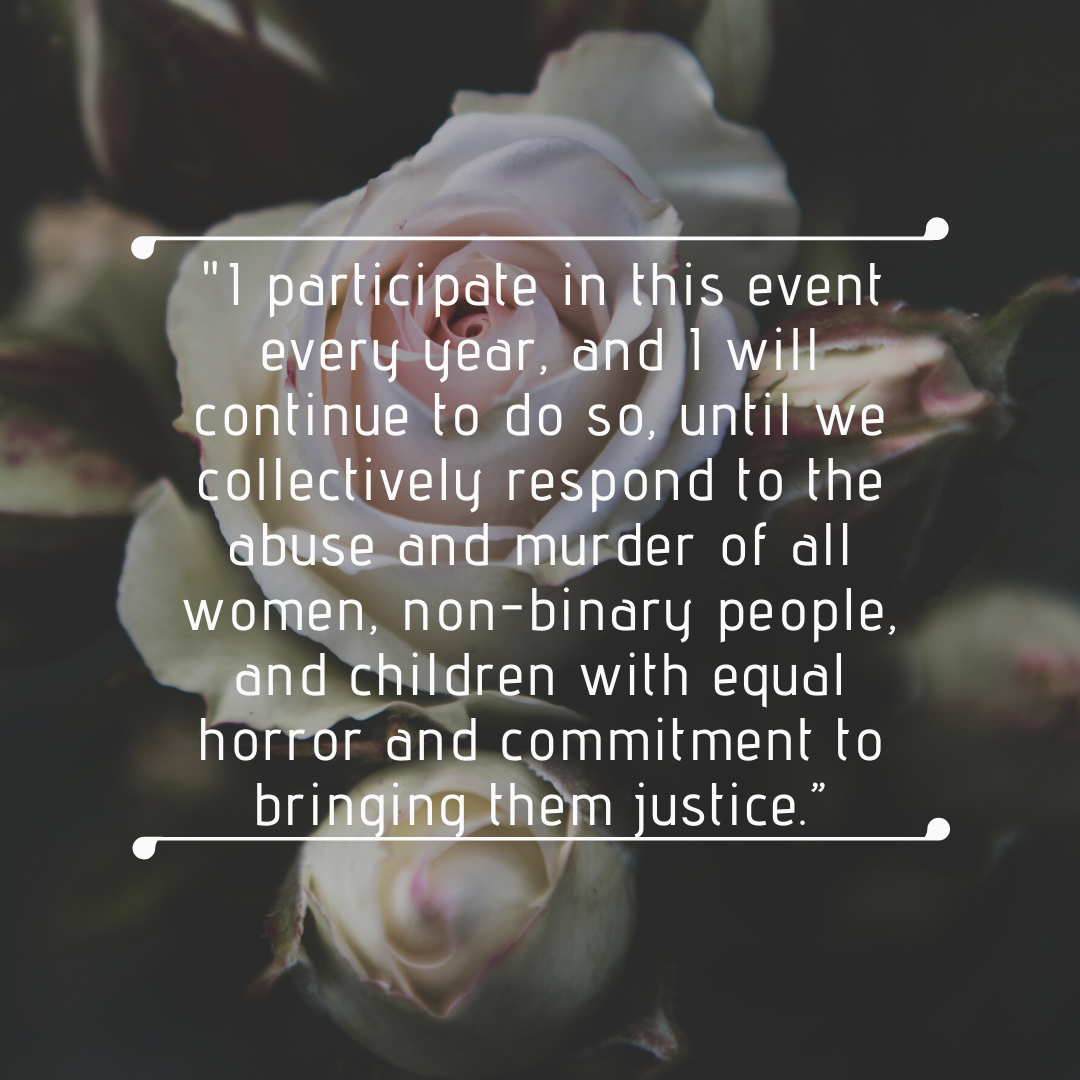 Glynnis Lieb, Executive Director, (iSMSS)
Glynnis Lieb, Executive Director, (iSMSS)
"On December 6, 1989 I was just entering adolescence. I had also recently moved with my mother and siblings halfway across Canada, and away from my father, who, a victim of abuse himself, expressed his trauma through domineering control and abuse. When the news about l'École Polytechnique de Montréal aired, it struck me so viscerally. As a young university student, I would go on to work with Social Services. Through that, I saw the true depths to which anger, trauma, and ill will can take people, and the extent of how vicious their actions towards those they are intimately involved with can be.
In my current role as Executive Director of iSMSS, I am reminded daily about the frequency with which women and children still experience abuse and devaluing, particularly Indigenous, queer, and trans people. I participate in this event every year, and I will continue to do so until we collectively respond to the abuse and murder of all women, non-binary people, and children with equal horror and commitment to bringing them justice. Then, I will still continue to participate until violence towards women, non-binary people, and children is so widely unacceptable that instances have all but ceased to occur."
- Glynnis Lieb, Executive Director, Institute for Sexual Minority Studies and Services (iSMSS)
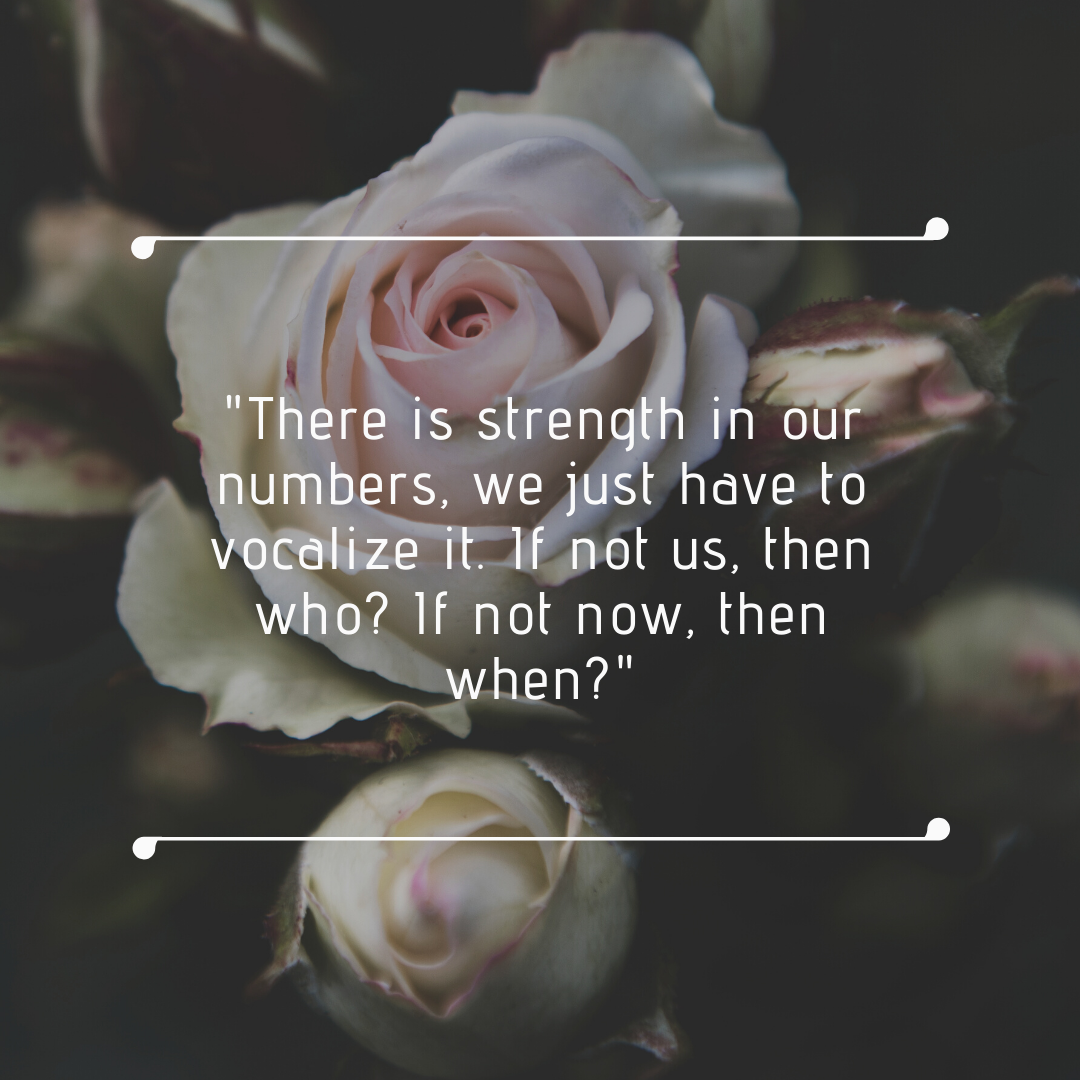 Akanksha Bhatnager, President, Students' Union
Akanksha Bhatnager, President, Students' Union
"After 30 years, this day is imperative for all of us to reflect on. So often, we don't take a moment to thank and appreciate the people who, throughout our lives, have been supporting us, standing behind us, cheering us on. Gender-based violence disproportionately affects women and non-binary people, and it is our responsibility, as women, to love, support and embolden each other. There is strength in our numbers, we just have to vocalize it. If not us, then who? If not now, then when?"
- Akanksha Bhatnager, President, Students' Union
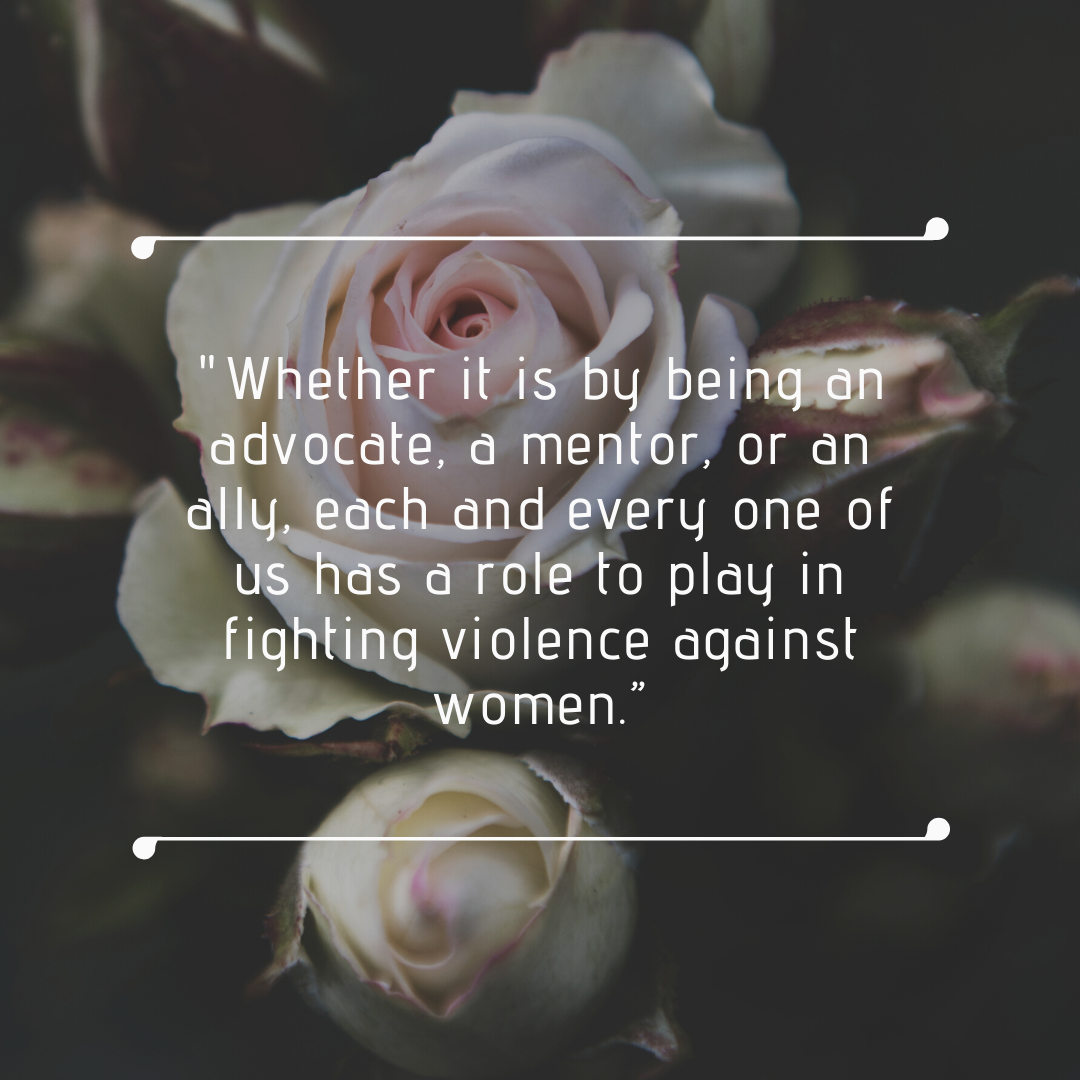 Cai Lin Yang, Vice-President, Diversity in Engineering Club
Cai Lin Yang, Vice-President, Diversity in Engineering Club
"As a woman in engineering, I think events like this are especially important in helping us to recognize how far we've come as a society in terms of gender equality and how far we still have to go. Women are still being chastised and punished for speaking up, chasing their dreams, and sometimes simply for being who they are. Women continue to face challenges and violence in our classrooms, workplaces, and in our homes.
As one of the root causes to violence against women is gender inequality, empowering young girls and women can be a key step in fighting against this violence. I volunteer with a student group on campus called Diversity in Engineering. We are a group of students working together with the faculty, industry, and the alumni community to advocate for the inclusion and interests of underrepresented groups in engineering. We regularly host events and bring in industry speakers to help engage students in meaningful conversations around the topics of inequality, stereotypes, and biases. And we are not alone. There are many other groups both on and off campus that are working to create systemic change - including WISEST (Women in Scholarship, Engineering, Science, & Technology), Robogals, and YWCA Edmonton. If you have the time or resources to help, I would highly encourage you to find an organization and become involved. Whether it is by being an advocate, a mentor, or an ally, each and every one of us has a role to play in fighting violence against women."
- Cai Lin Yang, Vice-President, Diversity in Engineering Club
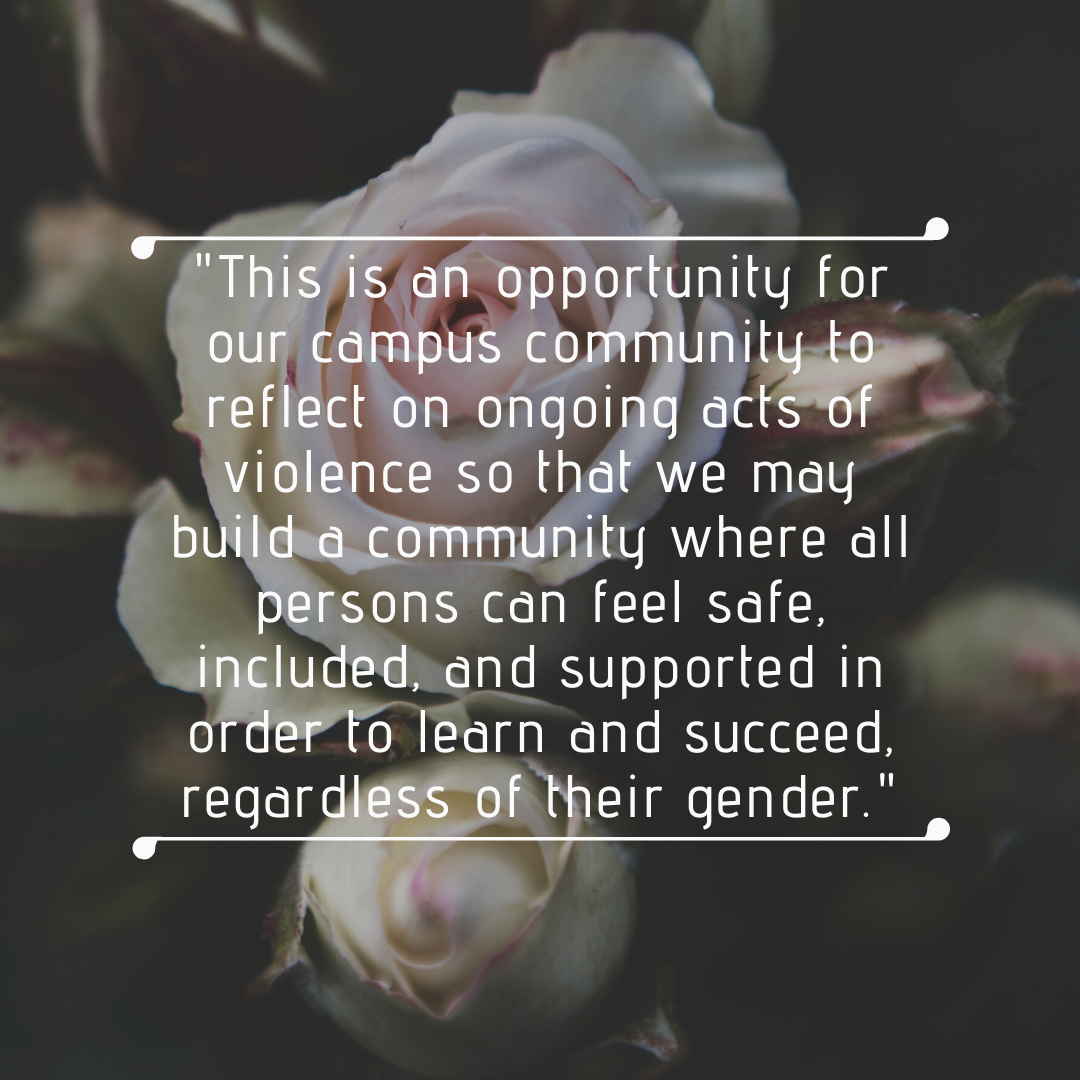 Chantal Labonté, Vice-President Student Services, Graduate Students' Association
Chantal Labonté, Vice-President Student Services, Graduate Students' Association
"As a female graduate student, it continues to sadden me, even 30 years later, that young, ambitious students were not able to achieve their goals because they were women. The National Day of Remembrance and Action on Violence against Women is an opportunity for our campus communities to reflect on ongoing acts of violence so that we may build a community where all persons can feel safe, included, and supported in order to learn and succeed, regardless of their gender. We all deserve to learn, work, and live in an environment that is free of violence. On December 6, we are all called to act in a way that creates an environment of respect for all."
- Chantal Labonté, Vice-President Student Services, Graduate Students' Association